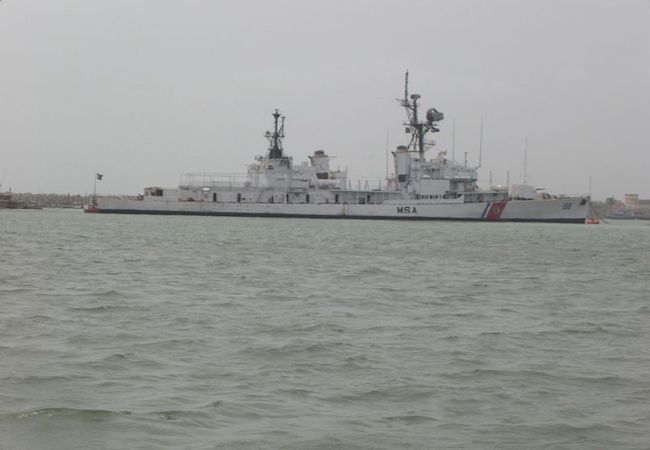
By Asia Maqsood
CPEC has much potential to transform Pakistan in to a trade hub which would definitely evoke some sentiments in our enemies particularly India to halt this. historically, Indian analysts have been determining its ancient maritime antiquity to substantiate two vital politico-military doctrines; one is whoever controls the Indian Ocean, controls Asia and second is that the extra-regional powers should be out of the as they called this India’s Ocean as it lies at its backyard. This strategic thinking is obviously challenging specifically for Pakistan along with China. Since then Pakistan’s Navy has adopted a considerable arrangement such as Pakistan’s Navy’s Special Task Force-88. As the maritime traffic through the Gwadar Port is expected to increase many folds eventually the accomplishment of CPEC depends upon the maritime security. It requires a multifaceted approach to meet all security challenges by beefing up the security of Gwadar Port, directing security guards, coastal exercises and increasing Maritime Domain Awareness by engaging law-enforcing agencies. All along the challenges posed by India’s growing influence in Indian Ocean, there are other challenges such as human trafficking, piracy and human trafficking. Therefore Pakistan’ Navy is working on basic three tenets; firstly, on the security of Port’s security, vessel security and security of sea lanes. To get all these objectives and efficient working of CPEC, Pakistan is expected to develop its own maritime security doctrine.
Initially India was the only country overtly opposing CPEC but recently US backing India saying that CPEC passes through the disputed area is a new challenge ahead of this mega project. The deliberations behind this opposition is first to pursue its hegemonic aspirations in the whole region of South Asia and Indian Ocean, secondly India perceives this development as threat to its competing interests in Central Asia to reach out to Afghanistan and Central Asia through the Chabahar Port. As this port facilitate India a channel for an easy access to Iran and Afghanistan. On the other side, the US is quite apprehensive of China’s presence in the Indian Ocean region. Through the development of Gwadar Port because of their mutual cooperation, Pakistan and China would be able to monitor the Indo-US maritime activities in the Indian Ocean. Hence to secure the sea lanes across the Indian Ocean, Pakistan Navy has to acquire more patrol ships and fast interceptors crafts at any cost.
It is pertinent to discuss here that the maritime security is linked with the economic development. Throughout the history, the trade through oceans remained vital in the economic aspect because the majority of trade was done through seas and fisheries have been a significant industry. Global shipping and fisheries have been developing multi-billion industries. The commercial aspect of this development would bring more revenue because of the offshore resources and coastal tourism.
The development of Gwadar Port under CPEC project would bring new hopes for economic and trade growth. Therefore, to secure this project Pakistan has taken many steps to enhance maritime governance with the cooperation of China. During the mid Feb of 2017, Pakistan has done multinational naval exercise in Karachi and north Arabian Sea. Military vessels, aircraft and special marine force teams from 37 countries joined the five-day exercise. In contemporary international political arena, the great powers have multifaceted factors before dwelling into cooperation with developing countries. Pakistan has suffered a lot during the “War on Terror” after that it has to face many limitations in foreign aid. This joint venture of CPEC-Gwadar Port not only raised the Pakistan image in international community in form investment but also emerged as the center of debate on many international forums. The new architecture of economic development has been emerging. Simultaneously it has many challenges including rising radicalization, terrorism, ethno-nationalism and poverty. China’s aspirations for the development of these countries through modern infrastructure and economic development can meet all above-mentioned challenges.
Finally, the issues of transnational crimes such as maritime terrorism, piracy, human trafficking and cyber-related crimes in Indian Ocean would disrupt international commercial activities which can lead towards economic collapse adversely affecting Pakistan and other stakeholder states. Therefore, countering these problems has become one of the priorities for Pakistan by strengthening maritime security governance as well. It is vital task if we see this through the prism of regionalism, critical security studies approach and constructivism. Strengthening Maritime Security Governance remains significant towards both onshore and offshore maritime activities. Onshore activities are related to the physical infrastructure of the port and its surroundings and offshore relate to all activities in the waters. International legal frameworks under UNCLOS, International maritime organization and world customs organization would allow collective security measures to strengthen; by incorporation of relevant laws, regulations and procedures towards security, safety and responding efficiently in times of crisis.
Asia Maqsood is Research Associate at Strategic Vision Institute in Islamabad.




